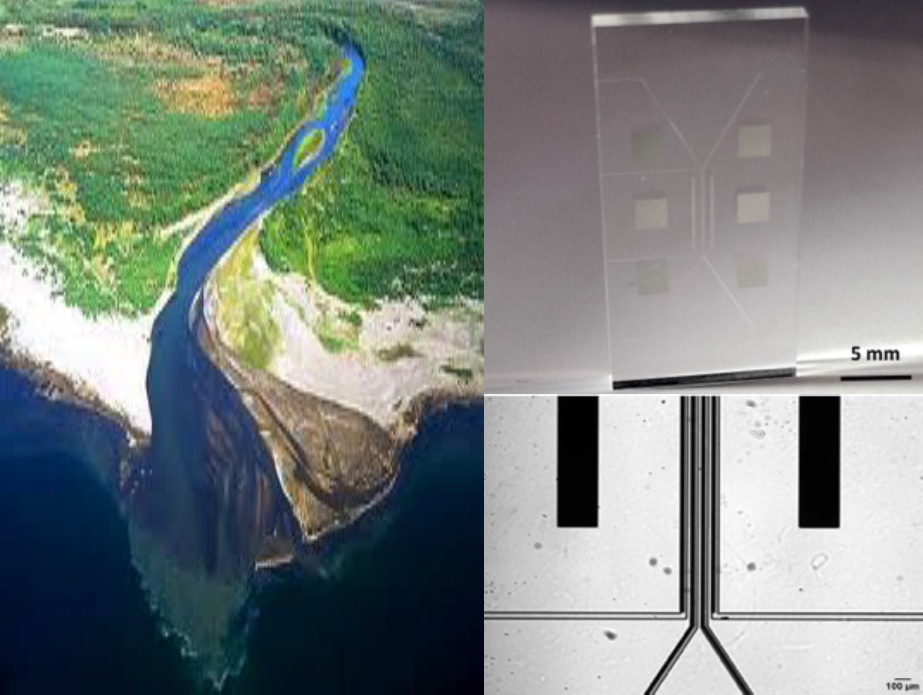- Share
- Share on Facebook
- Share on X
- Share on LinkedIn
Recruitment

PhD offer 2024-2027 - Doctoral school IMEP2 of Grenoble
Supervisors : Dr. Cyril Picard et Pr. Elisabeth Charlaix
Project description
The recovery of the mixing energy of saline solutions, such as freshwater/seawater, offers a decarbonated, renewable and non-intermittent energy source, whose potential is comparable to the global demand for electrical energy [1]. This “blue energy” is currently unexploited because the best processes, based on ion-selective membranes, deliver power densities of the order of the Watt per square meter, too low to be economically viable. The discovery of the capacity of single nanotubes or nanopores, to convert salt energy with power densities of kiloWatt [2] or even MegaWatt per square meter of section, has renewed the interest for this energy source. However, the transition from a single nanopore to a macroscopic membrane raises very fundamental scaling problems. It is now established that the phenomenon of concentration polarization at the membrane/reservoir interface, reduces the power density produced by nanopores by several orders of magnitude, intrinsically limiting the power density of membranes made up of the most efficient nanopores to less than 10 W/m².
Beyond materials, it is necessary to develop completely new approaches at the process level. The objective of this thesis, based on theoretical and numerical work carried out in our team [3], is to study experimentally the optimization of micro- and nano-scale flows to fight against concentration polarization and the massive losses it induces on the power generated by selective nanopores.
The thesis will build on our collaboration with CEA-LETI for the development of optimized fluidic nanochips, on the team's expertise in high resolution nanofluidic instrumentation and measurements [4], and on our collaboration with the Laboratory of Applied Mathematics Analysis (LAMA, D. Bresch) for the mathematical and numerical modeling of devices in operation. The expected result is the validation of a new approach based on nanoflows for harvesting saline gradients energy at high power density.
References
[1] B. E. Logan and M. Elimelech, Membrane-based processes for sustainable power generation using water, Nature 488, 313 (2012)
[2] Siria A et al, Giant osmotic energy conversion measured in a single transmembrane boron nitride nanotube, Nature 494, 455 (2013)
[3] S. Sripriya et al, A nanofluidic exchanger for harvesting saline gradient energy, Lab-On-a-Chip, submitted
[4] Sharma P, Motte JF, Fournel F, Cross B, Charlaix E and Picard C, A Direct Sensor to Measure Minute Liquid Flow Rates, Nano Lett. 5726−5730 (2018)
Deadline
Apply on the IMEP2 doctoral school website https://adum.fr/as/ed/propositionFR.pl before May 22nd 2024
Download
PhD-BlueEnergy-Grenoble.pdf (PDF, 1.86 MB)
Contact
Cyril PICARD
MODI team
cyril.picard univ-grenoble-alpes.fr (cyril[dot]picard[at]univ-grenoble-alpes[dot]fr)
univ-grenoble-alpes.fr (cyril[dot]picard[at]univ-grenoble-alpes[dot]fr)
- Share
- Share on Facebook
- Share on X
- Share on LinkedIn